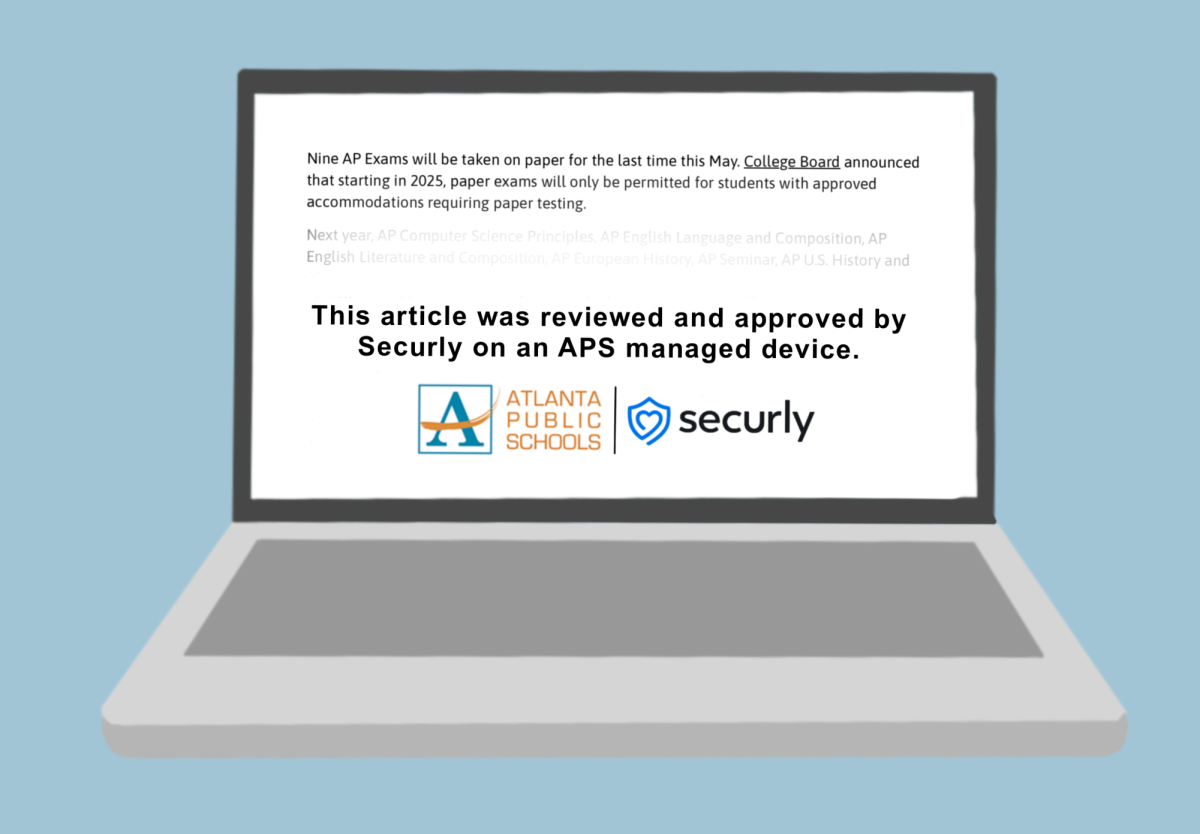After its Nov. 1 closing, the loss of the Wellstar Atlanta Medical Center left thousands of people underserved, hurting a vulnerable population’s access to healthcare.
In its statement on the closure, Wellstar said financial losses were driving its decision to close Atlanta Medical Center’s doors, citing a 107 million dollar loss in a period of a year.
The news of the closure of the downtown institution on Ralph McGill Boulevard came as a surprise, shocking community members, politicians and hospital staff alike. This closure will cost the city 532 hospital beds and one of only three inner-city emergency rooms. On Thursday, Sept. 15, Governor Brian Kemp announced a plan in response to the closure: a 130 million dollar endowment from the state to Grady Hospital, created to allow for the addition of almost 200 hospital beds at Grady Hospital, which will likely be split between an emergency center located across the street from the main building and the ICU. However, Kemp’s plan does not fully fill the void, as Atlanta still lost a net 300 hospital beds. Grady’s emergency room is also alarmingly understaffed, so wait times for patients will significantly rise, slowing down response times and increasing the possibility of deaths.
The hospital also served a low-income area and group. Closures of inner-city hospitals like the Atlanta Medical Center almost always disproportionately hurt poor and minority patients. The Atlanta Medical Center services a needy community, and its closing will leave them with no choice but to go to an understaffed Grady Hospital, which is also more expensive for patients and their insurance.
The Atlanta Medical Center mostly served three zip codes, 30331, 30344 and 30315, all of which are located in the southside of Atlanta. Residents in these three zip codes have a median household income of 33,198 dollars per year, and are, according to the most recent census, just under 90 percent African-American. This data significantly differs from Atlanta’s as a whole, with 49 percent of people being African-American and having a median household income of 64,179 dollars, almost two times the average for the zip-codes served by the Atlanta Medical Center. The Atlanta Medical Centers offered a reliable, faster, closer and cheaper option for an impoverished area. Its closure will hurt not only the terminally ill in that area, who rely on hospitals for regular care, but every Atlantan, as the loss of the Atlanta Medical Center also brings the loss of an important level one trauma center.
As level one trauma centers, by definition of the American Trauma Society, Grady and the Atlanta Medical Center are looked to as regional resources for comprehensive trauma care. They are capable of providing care for every aspect of a traumatic injury and can provide 24-hour in-house general surgeons from a wide range of specialties. That includes emergency medicine and critical care. Outside of the Atlanta metro area, there are only three other level one trauma centers in Georgia. The loss of a level one trauma center will wound both Atlanta and Georgia’s medical system and residents, weakening medical infrastructure statewide. The closure of trauma centers especially affects those with preexisting health conditions, who rely on trauma centers and emergency rooms like the Atlanta Medical Center for regular care.
According to Pew Research Center, African-Americans are also more likely than other racial groups to have preexisting health conditions that weaken the immune system and make death more likely. These conditions—things like diabetes, asthma, heart disease and obesity—are critical factors, and they point to the persistence of racial discrimination in healthcare, which has long heightened African-American’s vulnerability to premature death. Preexsisting conditions can intensify a need for a close, reliable emergency room. The loss of the Atlanta Medical Center takes this away from a group that desperately needs reliability, and shines a light on the healthcare system’s emphasis on profit rather than need.
This isn’t just a problem in Atlanta, with hospitals and other healthcare moving into more affluent branches after pulling out of poor city neighborhoods, where the sickest populations are more likely to live and the average lifespan is significantly lower. The Atlanta Medical Center’s closure shows not only the downfall of accessible hospitals in Atlanta, but in the whole United States.














